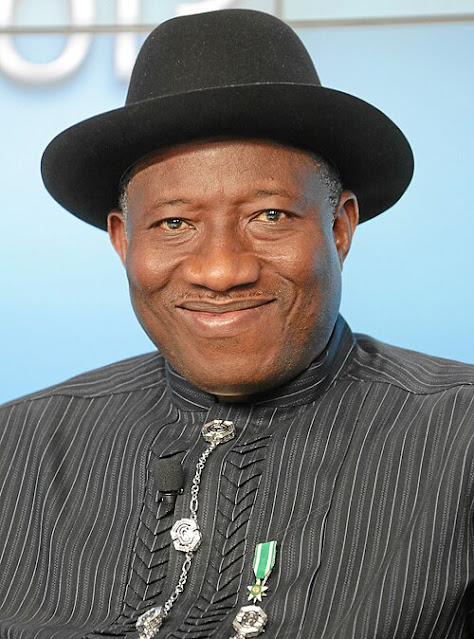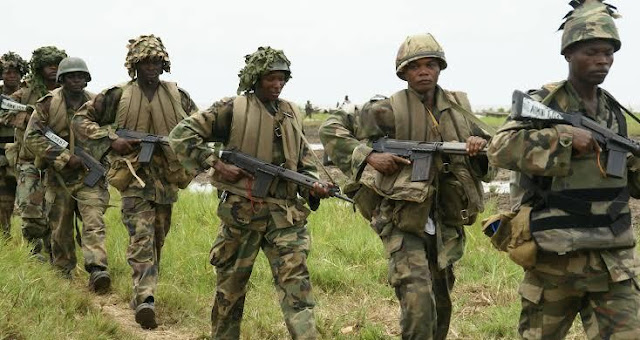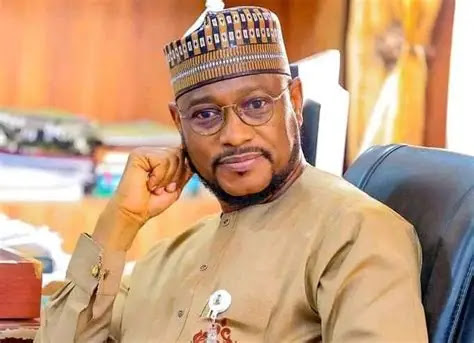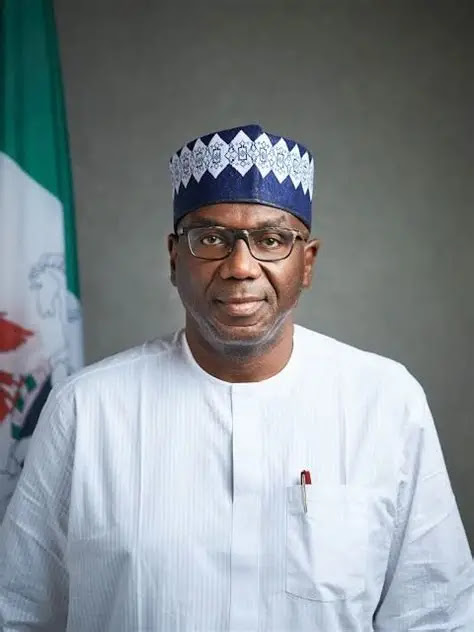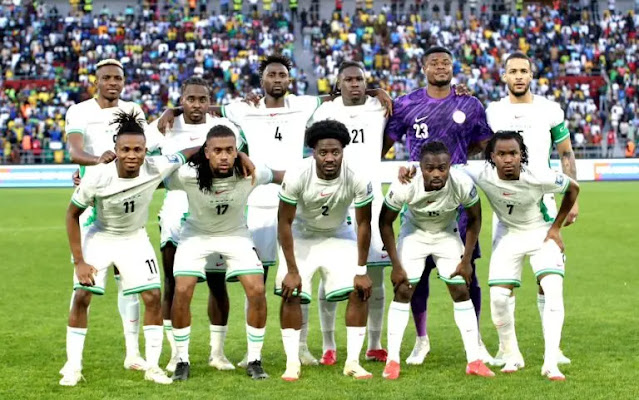As Nigeria approaches the 2027 general elections, the political landscape is already witnessing intense maneuvering, with former President Goodluck Ebele Jonathan emerging as a central figure in the unfolding drama. According to credible sources, Jonathan, who served as Nigeria’s president from 2010 to 2015, has initiated a series of strategic engagements with influential Nigerians, signaling his potential interest in contesting the presidency in 2027. Among these high-profile interactions, a recent visit to former military president General Ibrahim Badamasi Babangida in Minna, Niger State, has sparked widespread speculation about Jonathan’s political ambitions.
The former president’s activities come at a time when Nigeria is grappling with economic challenges, security concerns, and growing public discontent with the current administration under President Bola Ahmed Tinubu. Jonathan’s re-emergence as a potential candidate has ignited debates about his eligibility, political strategy, and the broader implications for Nigeria’s democracy. This article delves into the details of Jonathan’s reported moves, the historical and political context of his potential candidacy, and the dynamics shaping Nigeria’s political future as the 2027 elections draw closer.
Jonathan’s Strategic Outreach: Building a Coalition for 2027
According to a report by Naija News, a source close to Jonathan’s camp revealed that the former president has been quietly reaching out to influential figures across Nigeria’s political, religious, and traditional spheres. These engagements are seen as deliberate efforts to build a broad-based coalition ahead of the 2027 presidential race. The source, who spoke on condition of anonymity, confirmed that Jonathan’s visit to General Babangida was part of this calculated strategy to secure endorsements and test the waters for a possible comeback.
General Babangida, a towering figure in Nigerian politics, is known for his influence and extensive network, particularly in the northern region. His military presidency from 1985 to 1993 left an indelible mark on Nigeria’s political history, and his opinions continue to carry weight among political elites. The meeting between Jonathan and Babangida, held in Minna, was described as a private consultation, with discussions centered on Nigeria’s current challenges and the future of its leadership. While the specifics of their conversation remain undisclosed, political analysts suggest that Jonathan sought Babangida’s counsel and support, leveraging the elder statesman’s influence to bolster his prospects.
The choice of Babangida as a key figure in Jonathan’s outreach is significant. Babangida, often referred to as the “Maradona of Nigerian politics” due to his strategic acumen, has a history of shaping political outcomes behind the scenes. His endorsement could sway opinions in the North, a region that plays a pivotal role in determining Nigeria’s presidency due to its large voting population. Jonathan’s decision to engage Babangida underscores his understanding of the need for cross-regional alliances in Nigeria’s complex political terrain.
In addition to Babangida, Jonathan is reportedly reaching out to other prominent figures, including former heads of state, governors, religious leaders, and traditional rulers. These consultations are aimed at gauging public sentiment, securing political capital, and addressing potential obstacles to his candidacy. The source emphasized that Jonathan’s approach is cautious yet deliberate, reflecting his awareness of the challenges posed by Nigeria’s polarized political environment.
Historical Context: Jonathan’s Presidency and Political Journey
To fully understand the significance of Jonathan’s potential candidacy, it is essential to revisit his political journey and the legacy of his presidency. Born on November 20, 1957, in Otuoke, Bayelsa State, Goodluck Jonathan rose from humble beginnings to become one of Nigeria’s most prominent leaders. His political career began in the late 1990s when he served as deputy governor of Bayelsa State under Governor Diepreye Alamieyeseigha. In 2005, following Alamieyeseigha’s impeachment, Jonathan assumed the governorship, marking the beginning of his rapid ascent in Nigerian politics.
In 2007, Jonathan was selected as the running mate to President Umaru Musa Yar’Adua under the Peoples Democratic Party (PDP). Following Yar’Adua’s death in 2010, Jonathan became acting president and later substantive president, completing Yar’Adua’s term. In 2011, he won the presidential election, defeating Muhammadu Buhari of the Congress for Progressive Change (CPC). His presidency, however, was marked by significant challenges, including the Boko Haram insurgency, economic difficulties, and allegations of corruption within his administration.
Jonathan’s tenure was a period of both progress and controversy. His administration made strides in areas such as agricultural reform, with initiatives like the Agricultural Transformation Agenda, which aimed to boost food security and reduce Nigeria’s dependence on imported goods. The privatization of the power sector, though fraught with challenges, was another hallmark of his presidency. Additionally, Jonathan’s government organized the 2014 National Conference, which sought to address Nigeria’s structural and governance issues, though its recommendations were never fully implemented.
However, Jonathan’s presidency was also plagued by criticism. The Boko Haram insurgency escalated during his tenure, with high-profile incidents such as the 2014 Chibok schoolgirls’ abduction drawing global condemnation. Economic mismanagement, including allegations of widespread corruption, further tarnished his administration’s image. The infamous “fuel subsidy scam” and the perception of weak leadership eroded public confidence in his government. In 2015, Jonathan lost his re-election bid to Muhammadu Buhari of the All Progressives Congress (APC), marking the first time an incumbent Nigerian president was defeated at the polls.
Jonathan’s concession of defeat in 2015 was widely praised as a statesmanlike act that prevented post-election violence and strengthened Nigeria’s democratic process. Since leaving office, he has maintained a relatively low profile, focusing on international diplomacy and peacebuilding efforts through the Goodluck Jonathan Foundation. His role as a mediator in African elections, including missions in Mali and The Gambia, has earned him respect as a global statesman. However, his recent political activities suggest that he may be preparing to re-enter Nigeria’s domestic political arena.
The 2027 Presidential Race: Why Jonathan?
The question of why Goodluck Jonathan is considering a return to the presidency is multifaceted, rooted in both personal ambition and Nigeria’s current political realities. Several factors make Jonathan a compelling candidate for 2027, despite the challenges he faces.
Public Discontent with the Current Administration: The administration of President Bola Tinubu, which assumed power in 2023, has faced significant criticism over its handling of the economy, security, and governance. Rising inflation, unemployment, and insecurity have fueled public frustration, creating an opportunity for opposition figures to present themselves as alternatives. Jonathan, with his experience as a former president, could capitalize on this discontent by positioning himself as a unifying figure capable of addressing Nigeria’s challenges.
Regional Dynamics and Power Rotation: Nigeria’s political landscape is heavily influenced by the unwritten principle of power rotation between the North and the South. By 2027, the South will have held the presidency for four years under Tinubu, potentially opening the door for another southern candidate or a northern candidate, depending on political negotiations. Jonathan, a southerner from the South-South geopolitical zone, could benefit from this dynamic, especially if the North seeks a candidate with national appeal and a track record of governance.
Jonathan’s Political Experience and Network: As a former president, Jonathan brings a wealth of experience and a vast political network to the table. His ability to navigate Nigeria’s complex political terrain, coupled with his international reputation, makes him a formidable contender. His outreach to figures like Babangida indicates a strategic effort to rebuild alliances and secure endorsements across regional and ethnic lines.
Public Nostalgia and Reassessment of His Legacy: In recent years, some Nigerians have expressed nostalgia for Jonathan’s presidency, particularly in light of the challenges faced under subsequent administrations. While his tenure was not without flaws, his perceived humility, accessibility, and commitment to democratic principles have endeared him to certain segments of the population. Social media campaigns and public discussions have occasionally portrayed Jonathan as a leader who was unfairly judged during his time in office.
Constitutional Eligibility: A key question surrounding Jonathan’s potential candidacy is whether he is constitutionally eligible to run for president again. Nigeria’s constitution limits presidents to two terms, whether consecutive or non-consecutive. Jonathan served one full term (2011–2015) and part of Yar’Adua’s term (2010–2011). Legal experts are divided on whether he is eligible for another term, with some arguing that his partial term does not count toward the constitutional limit, while others contend that he is barred from running again. This issue is likely to be a subject of intense debate and possible litigation if Jonathan formally declares his candidacy.
The Babangida Connection: A Strategic Alliance?
Jonathan’s visit to General Ibrahim Babangida is a pivotal moment in his political re-emergence. Babangida, who stepped down as military president in 1993 following the annulment of the June 12 presidential election, remains a powerful figure in Nigerian politics. His influence stems from his extensive network, which includes politicians, business leaders, and traditional rulers, particularly in the northern region. By engaging Babangida, Jonathan is signaling his intent to bridge the North-South divide, a critical factor in any successful presidential campaign in Nigeria.
The meeting in Minna, though described as private, is believed to have focused on Nigeria’s political future and the role Jonathan could play in it. Babangida’s endorsement would carry significant weight, particularly in the North, where Jonathan faced challenges during his presidency due to perceptions of southern bias. A source familiar with the meeting noted that Babangida expressed concerns about Nigeria’s current trajectory, particularly its economic and security challenges, and encouraged Jonathan to consider a leadership role if the conditions were favorable.
Babangida’s involvement in Jonathan’s strategy is not without precedent. During the 2011 presidential election, Babangida supported Jonathan’s candidacy, leveraging his influence to secure northern votes. However, their relationship has not always been smooth, with occasional tensions arising from differing political priorities. Jonathan’s decision to reconnect with Babangida suggests a pragmatic approach to politics, recognizing the need for alliances with influential figures who can sway public opinion and mobilize resources.
Challenges and Obstacles to Jonathan’s Candidacy
While Jonathan’s potential candidacy has generated excitement, it is not without significant challenges. The following factors could complicate his path to the presidency:
Constitutional and Legal Hurdles: As mentioned earlier, the question of Jonathan’s eligibility remains unresolved. If the courts rule that he is ineligible to run again, his campaign would be derailed before it gains momentum. Even if he is deemed eligible, opposition parties and candidates are likely to challenge his candidacy, creating a legal and political battle that could distract from his campaign.
Competition from Other Candidates: The 2027 presidential race is expected to be highly competitive, with several prominent figures likely to vie for the presidency. Within the PDP, potential candidates include Atiku Abubakar, who ran in 2019 and 2023, and Peter Obi, who gained significant traction in 2023 under the Labour Party. The APC, Tinubu’s party, may also field a strong candidate, particularly if Tinubu opts not to seek re-election. Jonathan will need to distinguish himself in a crowded field and secure the support of his party or a new political platform.
Public Perception and Legacy Issues: While some Nigerians view Jonathan favorably, others remain critical of his presidency, citing issues such as corruption, insecurity, and economic mismanagement. His opponents are likely to exploit these criticisms to undermine his candidacy, portraying him as a leader who failed to deliver during his time in office.
Regional and Ethnic Dynamics: Nigeria’s politics is deeply influenced by regional and ethnic considerations. Jonathan, as a southerner, may face resistance from northern politicians who argue that the presidency should return to the North in 2027. Building a coalition that transcends these divides will be a significant challenge for Jonathan.
Party Politics and Internal Rivalries: If Jonathan chooses to run under the PDP, he will need to navigate the party’s internal dynamics, including rivalries among its leaders. Alternatively, if he opts for a different platform, he will face the challenge of building a new political structure capable of competing with established parties like the APC and PDP.
The Broader Political Implications
Jonathan’s potential candidacy has far-reaching implications for Nigeria’s political landscape. His return could reshape the dynamics of the 2027 elections, influencing party strategies, voter behavior, and regional alliances. Below are some key implications:
A Shift in Political Narratives: Jonathan’s candidacy could shift the narrative from the current administration’s performance to a broader discussion about leadership, experience, and national unity. His campaign is likely to emphasize his track record as a unifier and his commitment to democratic principles, contrasting with the divisive rhetoric that has characterized recent elections.
Impact on the PDP and Opposition Politics: If Jonathan runs under the PDP, his candidacy could reinvigorate the party, which has struggled to mount a strong challenge to the APC since 2015. However, it could also deepen internal divisions if other aspirants feel sidelined. Alternatively, if Jonathan forms or joins a new political platform, it could fragment the opposition vote, potentially benefiting the APC.
Regional Power Dynamics: Jonathan’s outreach to northern leaders like Babangida suggests an attempt to bridge the North-South divide, a persistent challenge in Nigerian politics. A successful coalition could set a precedent for future candidates seeking to build cross-regional alliances.
Voter Sentiment and Youth Engagement: Nigeria’s youth, who make up a significant portion of the electorate, played a pivotal role in the 2023 elections, particularly through their support for Peter Obi. Jonathan’s ability to connect with this demographic will be crucial, as young voters are increasingly demanding accountability, economic opportunities, and good governance.
International Perception: Jonathan’s international reputation as a statesman could enhance Nigeria’s image on the global stage if he were to return to power. His experience in diplomacy and peacebuilding could position Nigeria as a leader in African and global affairs, particularly in addressing issues like climate change, security, and economic development.
Speculative Scenarios: What Could Happen?
As Jonathan’s political activities gain momentum, several scenarios could unfold in the lead-up to 2027:
Jonathan Secures PDP Ticket: If Jonathan successfully navigates the PDP primaries and secures the party’s nomination, he could emerge as a formidable candidate, leveraging the party’s national structure and his own political capital. However, this would require overcoming internal rivals and addressing concerns about his eligibility.
Formation of a New Political Platform: If the PDP proves inhospitable or Jonathan seeks to appeal to a broader electorate, he could form or join a new political party. This would be a risky move, given the dominance of the APC and PDP, but it could attract disaffected voters and politicians seeking an alternative to the status quo.
Alliance with Other Opposition Figures: Jonathan could explore alliances with other opposition leaders, such as Peter Obi or Atiku Abubakar, to form a united front against the APC. Such a coalition would require careful negotiation to balance competing interests and egos.
Legal Challenges Derail Candidacy: If opponents successfully challenge Jonathan’s eligibility in court, his campaign could be halted, forcing him to withdraw or pivot to a supporting role, such as endorsing another candidate.
Tinubu’s Re-election Bid: If President Tinubu seeks re-election in 2027, Jonathan’s candidacy could face an uphill battle against the APC’s formidable political machinery. Tinubu’s control of state resources and political networks would pose a significant challenge.
Public Reaction and Social Media Buzz
Jonathan’s reported political activities have already sparked significant discussion on social media platforms like X, where Nigerians are sharing their views on his potential candidacy. Supporters argue that Jonathan’s experience, humility, and commitment to democracy make him a viable candidate to address Nigeria’s challenges. Critics, however, point to his administration’s shortcomings and question whether he can deliver on the expectations of a disillusioned electorate.
A cursory analysis of posts on X reveals a polarized sentiment. Some users express nostalgia for Jonathan’s presidency, citing his peaceful disposition and efforts to promote national unity. Others dismiss his potential candidacy as a step backward, arguing that Nigeria needs fresh leadership to tackle its complex problems. The hashtag #Jonathan2027 has begun trending, with users speculating about his chances and the implications for the APC and PDP.
Conclusion: A Defining Moment for Nigeria
Goodluck Jonathan’s reported outreach to influential Nigerians, including his visit to General Ibrahim Babangida, marks a significant development in Nigeria’s political landscape as the 2027 elections approach. His potential candidacy raises critical questions about leadership, eligibility, and the future of Nigeria’s democracy. While Jonathan’s experience and international reputation make him a compelling candidate, he faces formidable challenges, including legal hurdles, political rivalries, and public skepticism.
As Nigeria grapples with economic hardship, insecurity, and governance challenges, the 2027 elections represent a pivotal moment for the country. Jonathan’s ability to build a broad-based coalition, address concerns about his past tenure, and connect with a diverse electorate will determine whether he can mount a successful comeback. For now, his strategic engagements signal a calculated effort to position himself as a viable contender, setting the stage for a highly competitive and consequential presidential race.
Whether Jonathan ultimately decides to run and how his candidacy shapes Nigeria’s political future remains to be seen. What is clear, however, is that his re-emergence has injected new energy into the political discourse, reminding Nigerians of the stakes involved in choosing their next leader. As the countdown to 2027 continues, all eyes will be on Goodluck Jonathan and the alliances he builds in his quest to reclaim Nigeria’s highest office.


